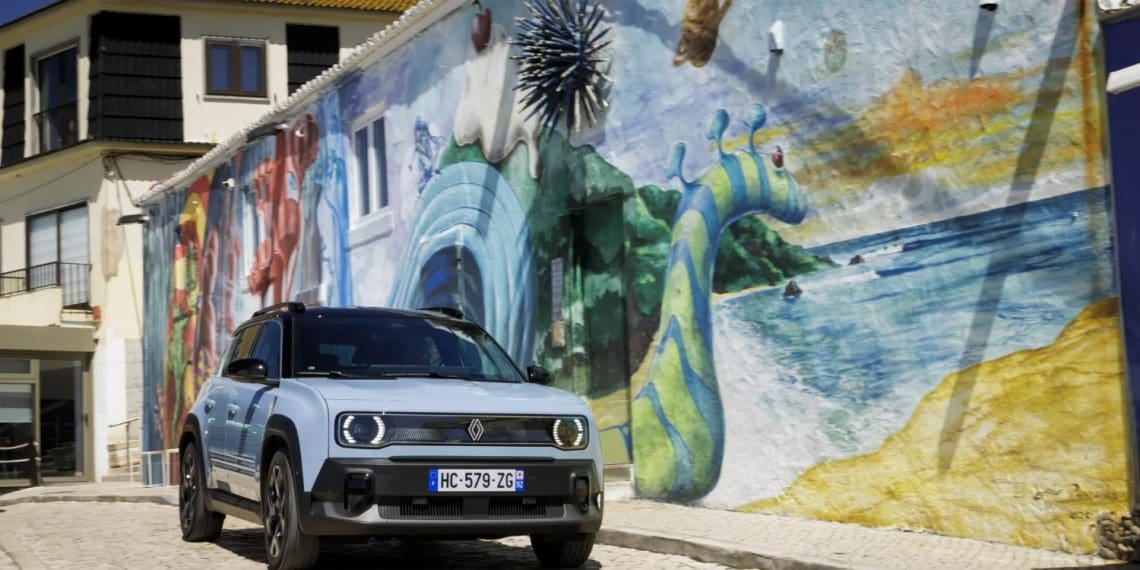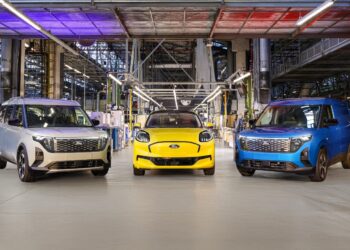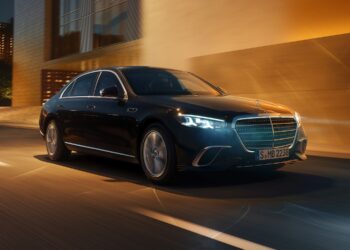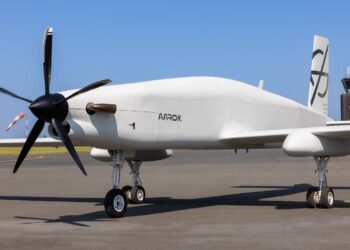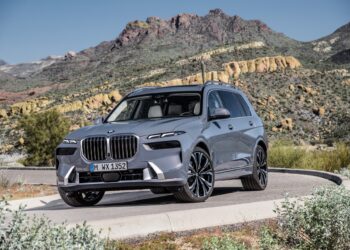Renault has chosen Portugal for the international testing of the new 4 E-Tech, the iconic model from the French brand that is making a comeback in a 100% electric mode, connected, and featuring a retro-futuristic design that is sure to appeal to a larger audience.
Over the course of three weeks, more than 560 participants from 26 countries are visiting Ericeira to test the model and learn all the details of its design and philosophy. In addition to press sessions, the program includes moments dedicated to influencers and professionals in the automotive sector, reflecting the strategic importance of the Renault 4 in the new generation of 100% electric models.
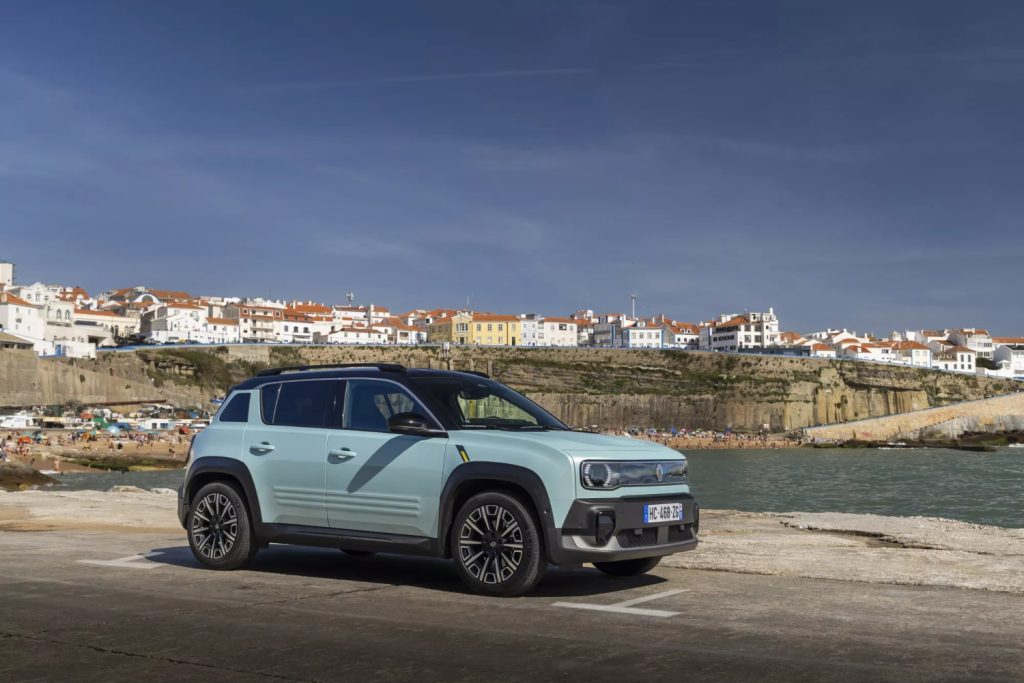
With a modular configuration and a loading length of 2.20 meters, the new Renault 4 E-Tech features a trunk door that extends to the bumper for a loading height of 61 cm and a capacity of 420 liters.
Additionally, the electric 4 E-Tech is also equipped with Extended Grip and has a towing capacity of 750 kg, allowing the driver to comfortably undertake any type of journey on any type of road.
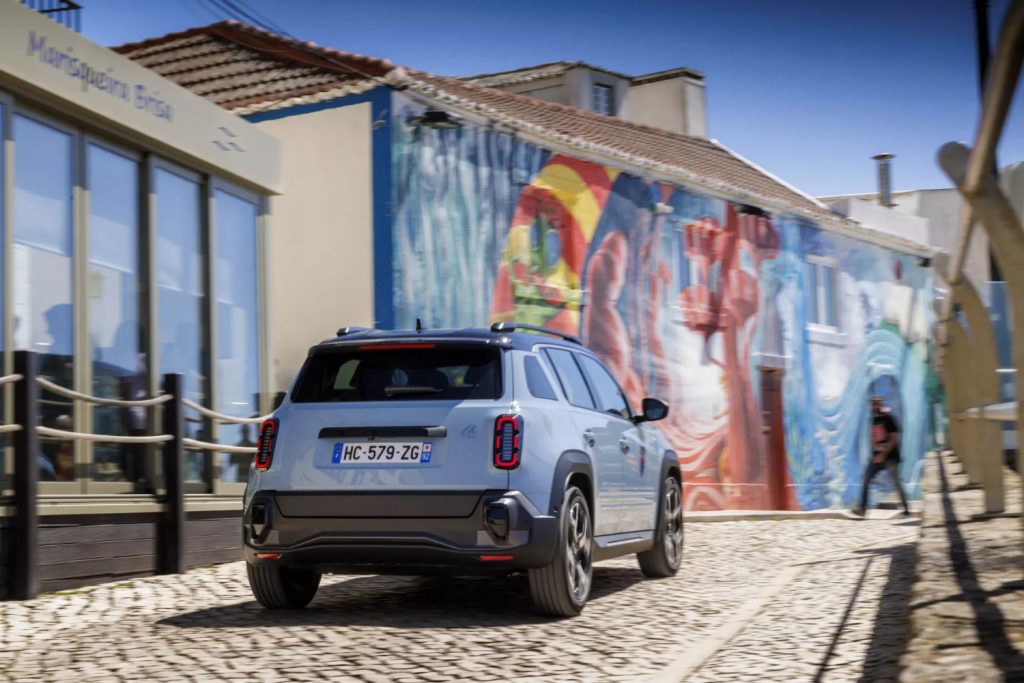
The new 4 E-Tech electric vehicle, like Renault’s latest offerings, comes packed with technology: ADAS for safety, OpenR Link with integrated Google for driving and onboard experience, over 50 useful applications and services, and Reno, Renault’s official avatar with ChatGPT. A set of features that promises to make this electric compact a benchmark.
Based on the same AmpR Small platform as the Renault 5, the new Renault 4 E-Tech offers two options for electric motor and battery. The first option, called urban range, combines a 120 hp wound rotor electric motor with a maximum torque of 225 Nm, along with a 40 kWh NMC lithium-ion battery, providing a range of up to 308 km.
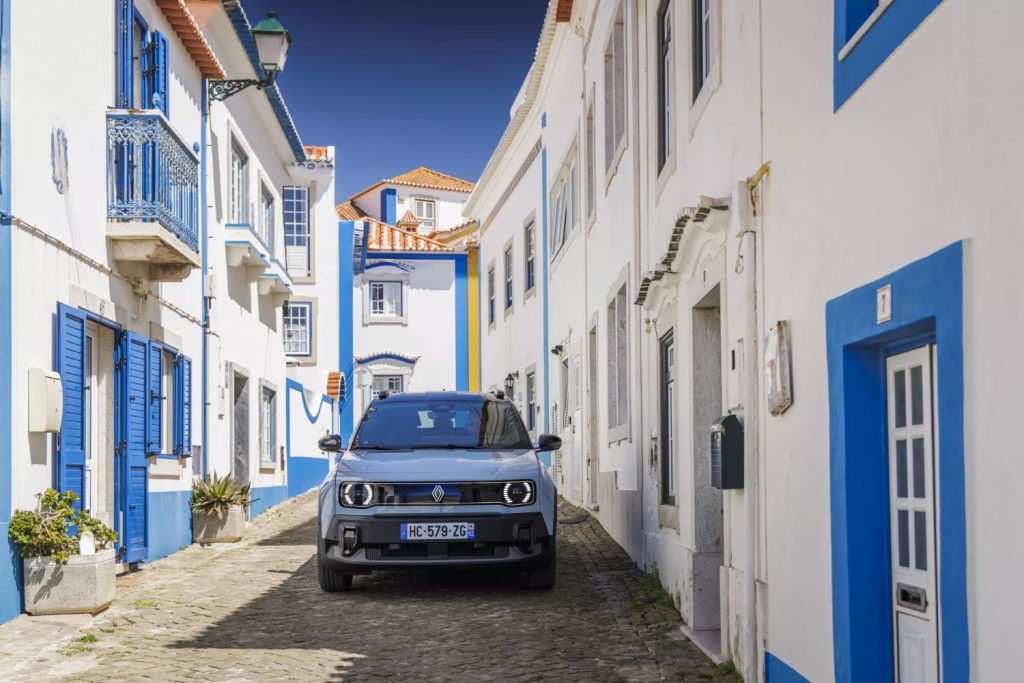
The second option, called comfort range, pairs a 150 hp wound rotor electric motor with a maximum torque of 245 Nm, along with a 52 kWh NMC lithium-ion battery, promising a WLTP range of up to 409 km.
The battery of the new 4 E-Tech can be charged from 15% to 80% using an 11 kW AC charger, taking 3 hours and 13 minutes for the 52 kWh battery and 2 hours and 37 minutes for the 40 kWh battery.

